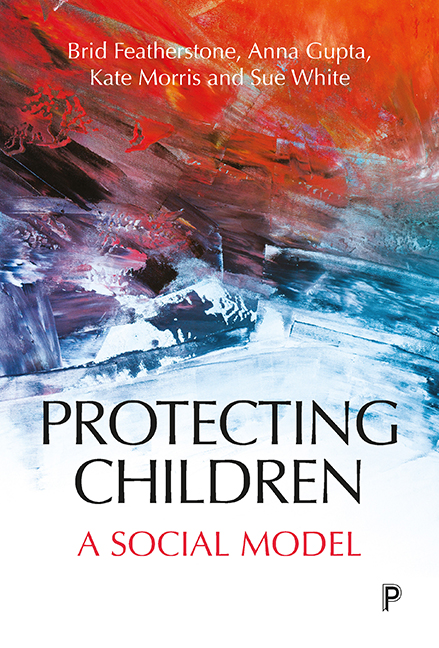Book contents
- Frontmatter
- Contents
- Acknowledgements
- one Introduction
- two Trouble ahead? Contending discourses in child protection
- three Building better people: policy aspirations and family life
- four Family experiences of care and protection services: the good, the bad and the hopeful
- five A social model for protecting children: changing our thinking?
- six A social model: experiences in practice
- seven Domestic abuse: a case study
- eight Crafting different stories: changing minds and hearts
- nine Concluding thoughts
- References
- Index
nine - Concluding thoughts
Published online by Cambridge University Press: 12 April 2022
- Frontmatter
- Contents
- Acknowledgements
- one Introduction
- two Trouble ahead? Contending discourses in child protection
- three Building better people: policy aspirations and family life
- four Family experiences of care and protection services: the good, the bad and the hopeful
- five A social model for protecting children: changing our thinking?
- six A social model: experiences in practice
- seven Domestic abuse: a case study
- eight Crafting different stories: changing minds and hearts
- nine Concluding thoughts
- References
- Index
Summary
Introduction
Hope is an embrace of the unknown and the unknowable, an alternative to the certainty of both optimists and pessimists. Optimists think it will all be fine without our involvement; pessimists adopt the opposite position; both excuse themselves from acting. It is the belief that what we do matters even though how and when it may matter, who and what it may impact, are not things we can know beforehand. (Solnit, 2016: xii)
We are neither optimists nor pessimists and offer our contribution in the belief that what we do does indeed matter. Our premise is that we need to ‘do differently’ as we watch the year-on-year rise in the numbers of children being removed from their families of origin, and the translation of stories of need and trouble into categories of risk and shame.
In this conclusion we note that, in order to do differently, we need bigger conversations than hitherto. These must involve those from a range of endeavours and disciplines and all those concerned with, and impacted by, child protection. We also explore some possibilities for democratising conversations more generally.
Our new story is very different, and shifting paradigms is a complex business. We know we have a considerable distance to travel with these ideas. It may be that only some can take hold initially and we must think longer term about the underpinning changes needed. Nor do we think that we have a route map for the way forward, instead we have a desire for different conversations. Practitioners, families, academics and researchers have more to contribute than we are able to, but we hope we have stimulated an opening discussion based on a new story set out in the preceding chapter and repeated here:
• Currently there are inequalities in children's chances of living safely within their families.
• These inequalities are directly related to deprivation and other forms of inequality such as in physical and mental health.
• Anti-poverty strategies need to be joined up with safeguarding strategies locally and nationally.
• The social determinants of many of the harms experienced by individuals and within families need to be recognised, understood and tackled.
• Social and collective strategies need to be integrated with humane practices directed at individual families.
• To protect children and promote their welfare we need to re-focus services on the contexts in which they live with their families.
- Type
- Chapter
- Information
- Protecting ChildrenA Social Model, pp. 159 - 168Publisher: Bristol University PressPrint publication year: 2018



